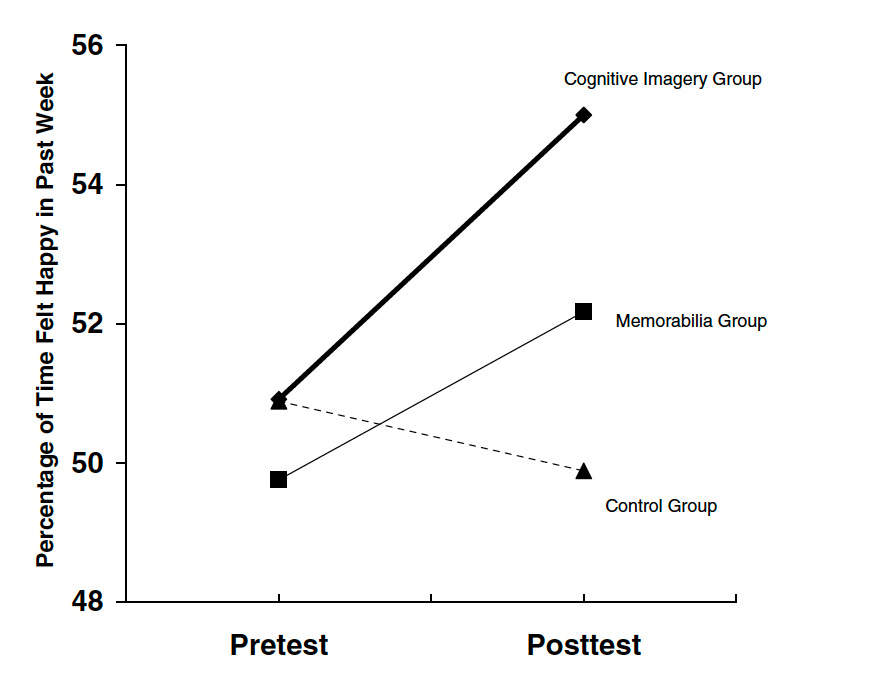My child's asleep. Why am I looking at photos of him?
Is looking at old photos the secret to happiness?
Welcome to Techno Sapiens! Subscribe to join thousands of other readers and get research-backed tips for living and parenting in the digital age.
Summary for busy sapiens:
Savoring refers to noticing and appreciating positive experiences
Research shows that savoring can increase happiness
We can savor positive experiences from the past, present, or future
When we look back at old photos, we can practice savoring
6 min read
It’s 8pm, and my son is asleep. The tornado of pre-bedtime activities has passed, and I’m covered in the remnants. Blueberries, crushed in tiny handfuls and gleefully strewn across the floor, stain my sleeves. Splotches of bathwater pepper my shirt. The avocado I removed from his hair (inexplicably) is now on my pants. I smell like diaper cream. Stories have been read, songs sung, bottles fed, pacifiers provided. And now, as my husband and I collapse into the couch, the audio monitor is, blissfully, silent.
Freedom! My time is suddenly my own again, and the possibilities are endless. I can chat with my husband. I can catch up on work. I can take a shower. I can check Twitter. I can watch Is it Cake?1
Instead, as I often do, I take out my phone. I open the Photos app. And I scroll through photo after photo of the tiny human I just put to sleep.
The baby, with a full yogurt mustache. The baby, smiling through tiny teeth. The baby, half his current size, eating yogurt for the first time. The baby, eyes puffy, sporting a tiny hospital-issued blue hat.2 I laugh and smile, positioning the phone below my husband’s face. Look at this one! He laughs too.
But with that joy is a pang of something different. A sadness, a longing to remember, an anxiety over the passing of time. On I scroll. Emails left unchecked, so-called self-care activities left undone, “me time” quickly evaporating.
I know I’m not alone. So many of us engage in this odd ritual of looking back at old photos, scrolling through images of our children’s horrified faces the first time they ate string beans, bursting into laughter while a tiny puddle of moisture collects in the corners of our eyes.
I’ve always felt a little guilty during these bittersweet photo-scrolling sessions—it’s a similar feeling to the one I get while listening to a sad song or watching one of those soldiers-coming-home videos. Why am I doing this to myself? I think.
And yet, could looking back at old photos actually be good for us?
Positive psychology and the benefits of savoring
There’s a whole subfield within psychology known as “positive psychology.” In contrast to the rest of psychology, which tends to focus on where things go wrong in our lives—suffering, trauma, mental illness, etc.—positive psychology focuses on where things go right. It’s the study of positive experiences, individual strengths, and how to create a meaningful life.
Positive psychology encompasses a number of interventions and strategies for increasing our well-being.3 One such strategy is especially relevant to our question about looking back at old photos: savoring.4
First, a short definition: savoring is “the capacity to notice and appreciate positive experiences.”
Now, a longer definition: Savoring refers to the “process through which people regulate their positive feelings by attending to: (a) memories of past positive experiences (through reminiscence); (b) ongoing positive experiences in the present (by savoring the moment); or c) future positive experiences (through anticipation).”
In other words, savoring means taking action, through our thoughts and behaviors, to cultivate a focus on positive experiences, whether those experiences are happening now, in the past, or in the future.
What are some examples of savoring?
Reflecting on three good things that happened to you at the end of the day.
Using “mental snapshots” to focus your attention on positive moments throughout the day.
Taking “mindful photographs,” i.e., spending at least 15 minutes focused on photographing a single subject.5
Most relevant to us, engaging in “positive reminiscence,” or reflection on happy memories.
And there’s actual science behind this?
There is. A 2014 meta-analysis of 16 studies shows that when researchers teach people to practice savoring, those people report increased happiness, positive emotions, and satisfaction with their lives. And a more recent, 2021 meta-analysis of all positive psychology interventions, covering 72,000 participants over 347 studies, found that savoring was a particularly effective intervention for reducing depression and anxiety and increasing well-being.
For example, let’s take a look at a 2005 study published in the (perfectly named) Journal of Happiness Studies. In a sample of 65 college students, researchers tested whether savoring past positive experiences (“positive reminiscence”) impacted happiness.
For one week, participants were randomly assigned to spend 10 minutes, twice per day, either:
(a) thinking about a positive memory while focusing on a memento (e.g., photo, memorabilia, gifts, award, souvenirs),
(b) thinking about a positive memory using only mental images,
or (c) thinking of an issue of interest or concern (this was the control group).
Before and after the experiment, participants were asked to rate the percent of time during the past week when they felt happy.
Here’s what they found. Participants in both of the “positive reminiscence” groups reported increases in happiness, whereas those in the control group did not. It may not seem like much—just a few percentage points—and we don’t know for sure how long these benefits last. Still, spending an extra 5% of the time each week feeling happy means an additional 8 hours of happiness! For reference, that’s more than an entire season of Is it Cake?
You’ll notice that the group instructed to reflect on the memory using only mental images reported slightly greater increases in happiness than the group instructed to focus on a memento. From the researchers: “interventions aimed at increasing the frequency of positive reminiscence will increase levels of happiness most effectively when they encourage participants to use vivid, cognitive imagery in recalling positive events.”
In other words, the photos themselves may not matter as much as the memories, as the time we spend reflecting on those moments.
A mindless scroll through our shared iCloud family photo album is unlikely to do much good, but when we slow down, pausing on photos to remember, in vivid detail, the way we felt in those moments, it might just make us happier.
Savoring moments, one photo at a time
Soon, it will happen again. The chaos of the day will settle as my son goes to sleep, and I’ll decide to pull out my phone again. As I scroll through the photos, I’ll spend a few extra moments reminiscing. I’ll recall the sound of my child belly-laughing, the feel of the grass beneath my feet, the joy I felt watching my husband throw him into the air.
That bittersweet feeling will come back because sometimes, remembering the moments that brought us the greatest happiness means recognizing that they are fleeting.
Maybe that’s just what parenting is. A chaotic mess of crushed blueberries and diaper cream, punctuated by moments of immeasurable, heartbreaking joy.
And maybe all we can do is to try to hold onto those moments, to savor them, for as long as we can.
A quick survey
What did you think of this week’s Techno Sapiens? Your feedback helps me make this better. Thanks!
The Best | Great | Good | Meh | The Worst
Have I watched Is it Cake? Yes. Do I regret it? Yes. Would I watch it again? Absolutely. My feelings about this show were oddly conflicted. It’s so bad. And yet. I think Abigail Covington at Esquire said it well: “I planned to write an angry tirade about how awful it is…[but] what once was a fountain of rage has morphed into a tsunami of joy. I can’t believe that beach ball isn’t cake! How did she make that cheeseburger bun look toasted? Who have I become?”
When my baby was born, I sent a photo of him wearing the hospital-issued blue hat to my brother and he replied with this photo of Justin Bieber. Honestly pretty accurate.
Full disclosure: I am very into positive psychology. My husband and I, when we’re feeling self-improvement-y, have tried a number of these strategies. We have a gratitude jar, for example, where we store pieces of paper on which we’ve written things we’re grateful for. We ask each other “What was the best part of your day?” over dinner to cultivate a focus on positive experiences. We set goals. We meditate (sometimes). We’ve really drunk the positive psychology Kool-Aid. In the process of writing this post, I even downloaded an app called HappyFeed. The app prompts you to take a photo of one thing you’re grateful for each day and, refreshingly, the entire company seems to just be one guy named Matt. We’re grateful for you, Matt.
Much of my research, and the above quotes, on savoring come from a 2014 chapter called Nurturing the Capacity to Savor: Interventions to Enhance the Enjoyment of Positive Experiences in Wiley Blackwell Handbook of Positive Psychological Interventions. Authors: Jennifer L. Smith, Patrick R. Harrison, Jaime L. Kurtz, & Fred B. Bryant. Highly recommend for those interested in further reading. Also love that their first paragraph contains a quote by Austrian poet Rainer Maria Rilke—something it seems you can get away with in the field of positive psychology—“the most visible joy can only reveal itself to us when we’ve transformed it, within.”
The concept of “mindful photography” could fill a post on its own, but the basic idea is that you spend awhile (at least 15 minutes) taking photos of a single subject. While doing so, you are supposed to reflect on the subject, and to try to make the photo meaningful to you. This, it seems, stands in stark contrast to my own photo-taking strategy, which is to frantically capture hundreds of photos as fast as possible, hoping one is less blurry than the others.





I know I am 2 years too late to this post, but this is fascinating. I think there is an interesting marriage between this insight and the insight that parents try to hoard moments while in the moment. This not only causes stress about crafting the perfect moment but allow detracts from them being present in that moment (ironically giving them less to savor).
Anyway, thank you for posting. Love the data as well.
I attended a motivation workshop at ABCT a couple years ago and Michael Otto talked about the benefits of savoring and reflecting on positive experiences. It prompted me to start a “well-being journal” wherein I write down one “above neutral” thing every day. It’s a very low lift intervention that has had a meaningful impact on me. +1 would definitely recommend.